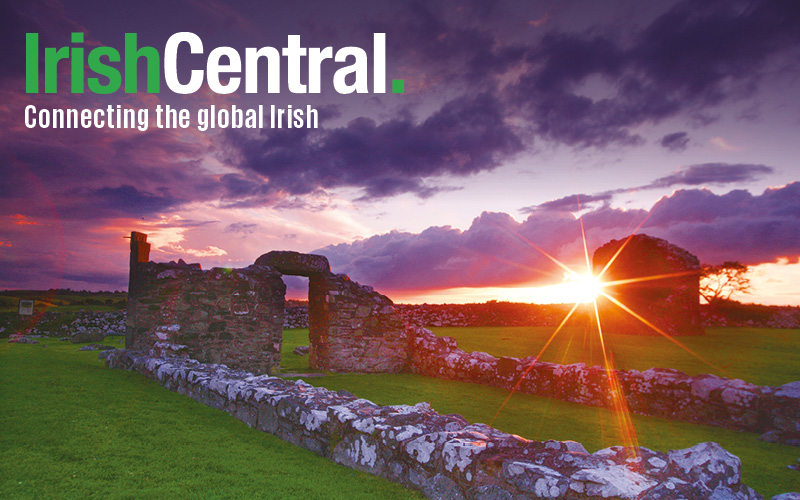Irish Foreign Affairs Minister Charlie Flanagan, in New York this week for a series of official UN duties and meetings with the local Irish American community, says the time isn’t right for a poll on Irish unity despite the many challenges posed by the U.K. Brexit vote.
“There is provision in the Good Friday Agreement for a border poll when the circumstances are such that the secretary of state is of the view that such a referendum might be carried. We are not yet in that place,” Flanagan said at a press briefing on Monday afternoon.
“A border poll now would be unhelpful and divisive. I stand by the Good Friday Agreement and its provisions.”
Untangling the ramifications of Brexit from Ireland’s unique point of view is a top priority for the Irish government, Flanagan says, adding that a return to a hard border between north and south is “simply unworkable.”
“The nature of the border now is that the only visible sign is a change from miles to kilometers on the road signs. The invisible nature of the border must stay … over 30,000 people every day cross the border,” he added.
Read more: Despite spike in racism in post-Brexit Britain Irish remain welcome
Flanagan reached out to his ministerial colleagues in the European Union immediately after the Brexit result to reinforce how the vote will adversely impact Ireland, given the border issues and the close relationship Ireland has with the U.K. He says European leaders are aware and sympathetic.
“I received acknowledgment and understanding that we are in a unique position,” Flanagan said. “I am struck by the number of my colleagues in the European Union who are mindful of the important role that Europe has played in our peace process, and they are anxious to preserve the benefits of that process.”
When asked about the volatility of voters in Europe and the U.S., Flanagan acknowledges that there’s been “something of a disconnect between many people in society and their leaders,” but he declined to comment on the U.S. elections other than to say the Irish government will, whatever the outcome, “work closely with the new U.S. administration over a range of issues in order to ensure that the very positive and constructive and close relationship between Ireland and the U.S. continues to flourish.”
In addition to delivering Ireland’s remarks at the United Nations General Assembly this week, Flanagan has a number of other engagements on his calendar. On Monday evening he addressed Fordham Law School, and has scheduled meetings with local Irish immigrant groups. He offered fulsome praise for the work the groups are doing throughout the U.S., and said the funding the government provides each year for their work is money well spent.
“I’ll be reporting back to my government colleagues as we prepare for the budget in October,” Flanagan said, but he stopped short of saying if funding increases are a possibility.
A number of Irish political leaders are in the U.S. this week for UN and other business. Diaspora Minister Joe McHugh attended UN meetings and met with local Irish immigration leaders.
Arlene Foster, the first minister of Northern Ireland, also began a four-day trip to New York and Washington, D.C. on Monday to encourage new business contacts. She is due in D.C. on Wednesday to address the International Bar Association.
Read more: Free video counseling service for the homesick Irish abroad launches today




Comments